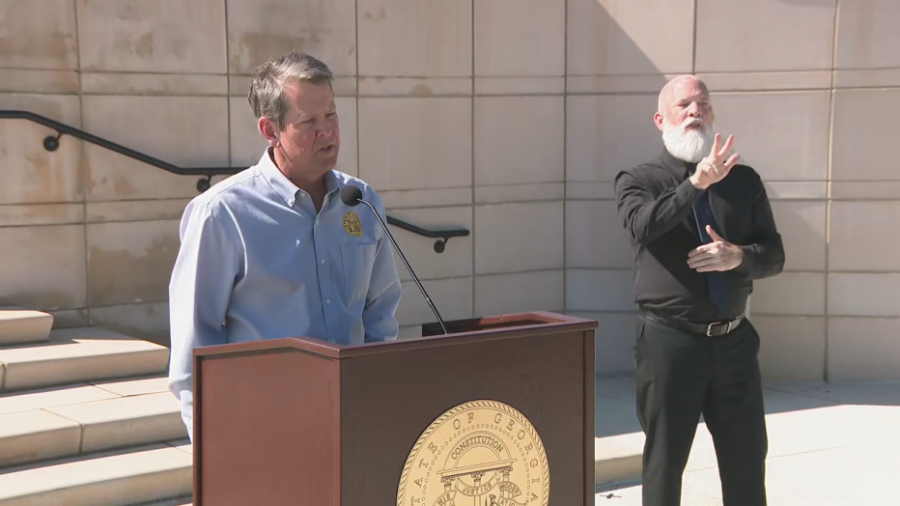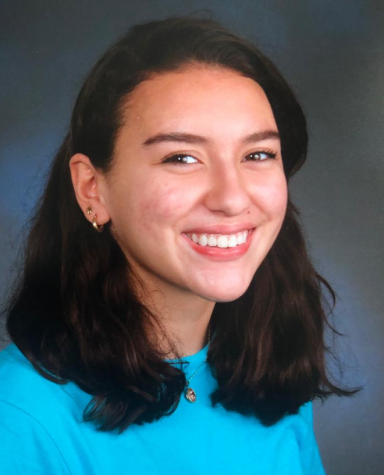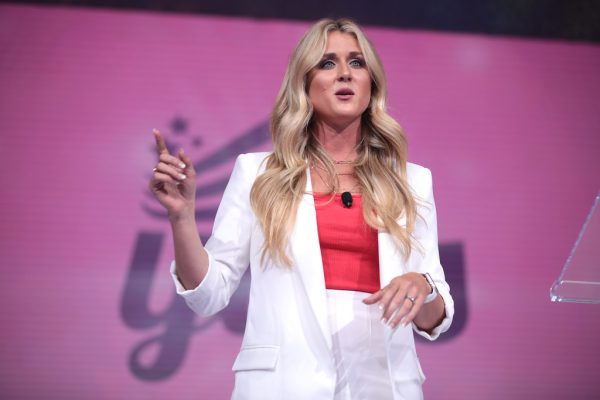Georgia’s Reopening Faces Backlash
Brian Kemp, the Govenor of Georgia, speaking to the public about the state’s controverisal reopening
May 9, 2020
Georgia Governor Brian Kemp has loosened restrictions on businesses, now allowing some non-essential businesses, such as hair salons, tattoo parlors, and bowling alleys to reopen in the state. The statewide shutdown was put into effect on the 3rd of April, and the state reopened on the 24th. Georgia is vulnerable compared to other states because it has a large high-risk population, composed of many people with heart disease, lung disease, and diabetes, and an alarming number of Georgians do not have health insurance. Georgia’s testing is much scarcer than public-health officials have recommended; less than 1% of Georgians have been tested. The decision to reopen so early compared to other states has received massive backlash. President Donald Trump expressed his disapproval of Brian Kemp’s actions publicly, despite having approved them prior to their enactment. The coronavirus cases in Georgia are still rising steadily, and a model shared by the US Centers for Disease Control and Prevention predicts that the number of COVID-related deaths will double by August.
Georgia has the lowest testing rates in the country, meaning that there is no accurate data on the rate of infection or the number of cases. Any decisions Gov. Kemp makes using the information available to him is based on incomplete data, and could have an adverse effect, especially if the uncertainty is not acknowledged. As Angela Sarmiento, a Georgia resident attending Atlanta International School (AIS), put it, another risk of loosening restrictions is that people will start to “take it less seriously now that they think things are returning to normal.” She continued, saying that she could see the lack of caution being exercised in Atlanta, even by her own classmates. “I’ve definitely noticed more people outside than usual. Now, when you go to the grocery store, you won’t see people wearing masks like they used to. Apart from that, I have noticed more people going out with their friends… I got invited to a party yesterday.”
On the other hand, as Charlotte Huck, a junior at AIS, said, “It was possible that the governor decided to reopen the state because a lot of our state is more rural than city, and the shutdown was affecting areas that are more agricultural based and have a very low number of cases.” Testing in rural areas is unreliable, but the low population density does mean that a high number of cases in a small town is less likely than in a big city.
On the other hand, a lower number of cases will affect a higher percentage of the population of a small town. Charlotte said that she understands Gov. Kemp’s decision to open “parts of the state. However, he should allow cities and/or counties to make their own decisions.” As an example, she offered Fulton County, which has 3000 reported cases, as an instance where the county should make its own decision, and Montgomery, which only has one, as a county that could open with few repercussions.
Another factor that makes Georgia susceptible to COVID is that a staggering 16% of Georgians do not have health insurance (making it the 4th most uninsured state in the USA). Although a pandemic would take its toll on the uninsured people in Georgia, the economy is cited as a major reason the governor is reopening the state. Ben Koslowski, another student at AIS, said that he believed “the governor is easing restrictions to help businesses generate cash flow again to prevent the economy from crashing more.” However, he did not think his decision made sense because the “virus is still too present in Georgia.” The lockdown “should still be in effect as it was before because, if businesses like movie theatres open again, there’s a chance that the spreading will intensify again, creating an even bigger problem.”
Angela Sarmiento expressed a similar idea, saying that the reopening “has a lot to do with the economy. My mom is a small business owner and everyone is struggling right now.” She continued with a personal anecdote about her nail salon (which she is not going to at the moment), saying that they were taking precautions by only allowing those with appointments inside the salon, giving all the employees PPE, and putting up screens between the clients and the nail artists. She admitted that she was sure that Georgia was not alone in their economic problems at the moment, so she “couldn’t say, without getting political, why Georgia specifically wanted to open up.”
From Chicago, junior Josephine Daab said that she didn’t think it was “right to reopen whole states right now because that could overwhelm hospitals,” and that she believed the “best way to open the country is to do it slowly so the hospitals aren’t needing overflow space.”
Maya Gray agreed, calling the recovery from the pandemic a “balancing act.” She thought that there was “something to be said for opening up the country in June or July, or whenever it’s considered safe enough, but only opening for people who aren’t immunocompromised. The best thing we can do for those people is protect them and keep them inside, because, at the end of the day, a lot of young people need money and they won’t die if they get it.”
From outside of Latin, Payton student Pauline Paranikas explained, “A lot of kids in CPS (Chicago Public School) agree with the decision to keep society closed because the risk to people with immunocompromised family members or people who can’t afford healthcare is pretty high.”
Like her peers, Ella Reese-Clauson feels that, although “quarantine is hard for families that are not receiving a steady income, the solution is not ending stay-at-home orders.” Businesses like bowling alleys, tattoo parlors, and movie theatres are unnecessary. “Our priority should not be saving the economy; it should be saving our people, and we can’t do that when people are blatantly ignoring the CDC’s recommendations.”


























































